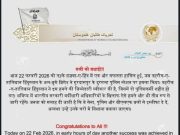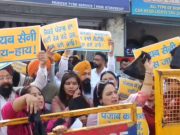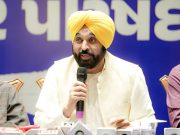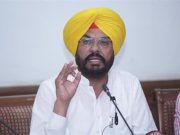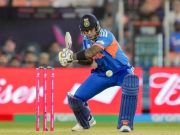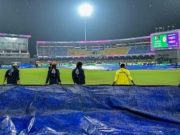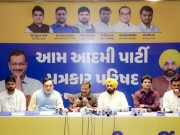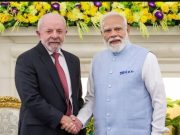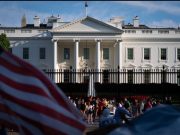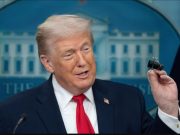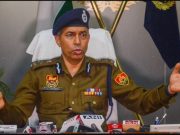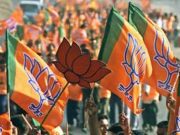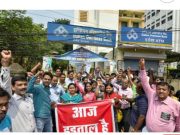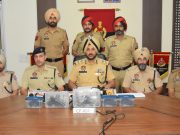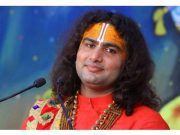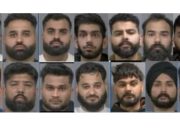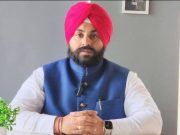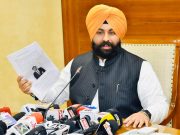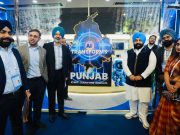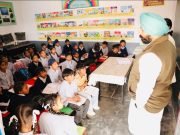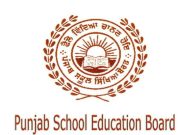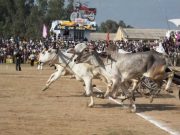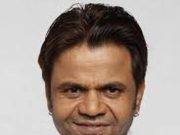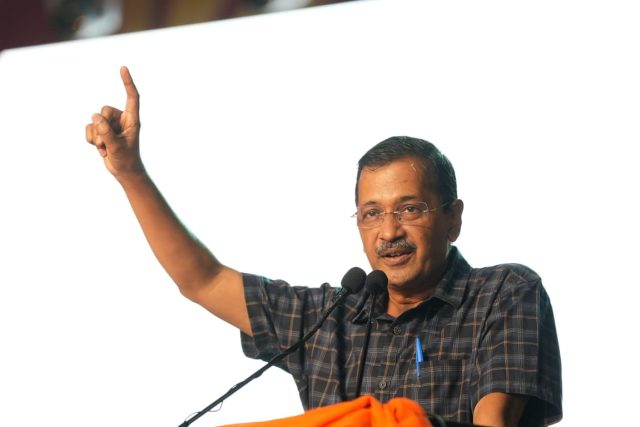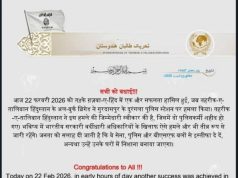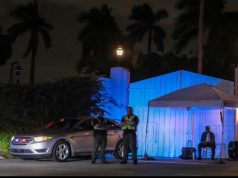We pay so much tax, yet schools, hospitals, roads, and electricity are in shambles; Corruption is everywhere: Arvind Kejriwal*
Punjab E News: Aam Aadmi Party (AAP) National Convenor Arvind Kejriwal called for uprooting hateful politics and the corrupt system that has held India back, at the ‘One India 2025’ National Cultural Festival at Lovely Professional University (LPU) in Punjab. He said that despite paying heavy taxes, citizens still struggle for basic services like schools, hospitals, roads, electricity and water, as corruption grips every corner of governance. Emphasising that education and healthcare are the backbone of progress, the AAP Chief said India can never become a Vishwaguru until it ensures good education and healthcare for all, like developed nations do.
The AAP Supremo asserted that government schools and hospitals can indeed improve, as the Aam Aadmi Party government has proven in Delhi and is now doing in Punjab. Addressing students, he celebrated India’s cultural, linguistic and religious diversity, saying that despite many traditions and attires, “we are one nation, one people, one India.”
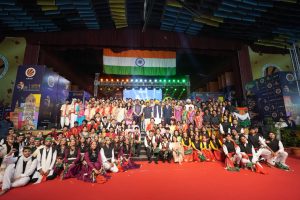
Reflecting on India’s diversity, AAP National Convenor Arvind Kejriwal stated, “You will not find another country with as many cultures as ours. Assamese, Bengali, Punjabi, Haryanvi, Malayalam, Tamil, Manipuri, and Tripura — each culture is unique and vibrant. In other countries, you’ll find one culture, one language, one kind of people, one kind of roads, one kind of everything. But in our country, there are about 121 languages, and if we include dialects, there are around 1200 dialects. No other nation has so many languages. In our country, people of every faith live together — Hindus, Muslims, Christians, Jains, Buddhists, Parsis — people from every religion coexist here.”
He further highlighted India’s diversity, “We have different histories — Marathwada has its own, Rajputana has its own, Karnataka’s history is different, Punjab’s is different, Haryana’s is different — every state has its own story. There are so many philosophies, dance forms, and cuisines. We have so many kinds of dresses and ways of living. Truly, one nation with many languages, with many cultures, with many philosophies, with many foods, but, one people. These 140 crore people — Tamils, Telugus, Punjabis, Haryanvis, Bengalis, Assamese — together form one India. This diversity is our greatest strength, and we must never let it become our weakness.”
Reflecting on India’s natural and human wealth, the AAP chief added, “I often think, when God created the Earth, He must have made India the most beautiful part of it. God gave us everything — mountains, rivers, various herbs, all kinds of minerals. And when God created human beings, He made the most intelligent ones in India. Wherever you go, you’ll find that Indians are the most enterprising people, especially Punjabis. Look around — the Chief Executive Officer (CEO) of Microsoft is Satya Nadella, of Google is Sundar Pichai, of Adobe is Shantanu Narayen, of IBM is Arvind Krishna, of FedEx is Raj Subramaniam — in almost every major multinational company in the world, you’ll find an Indian at the top.”
Recalling India’s glorious academic past, he further added, “Around 500 B.C., about two and a half thousand years ago, Nalanda University existed and it was the world’s top university. Ten thousand students from across the world studied there during the time of Gautam Buddha. But what has happened today? Out of the world’s top 100 universities, barely one or two of our Indian Institutes of Technology (IITs) make the list. Not a single Indian university consistently ranks among the world’s top 100. How do Indians perform so well on foreign soil? What happens to us here?”
Expressing concern over India’s governance, Arvind Kejriwal said, “Today, we see bridges collapsing, potholes all over the roads, garbage everywhere. Despite paying so much tax — and we leave no stone unturned in paying taxes — we get no services in return. Corruption is rampant all around. Why is that so? The systems are broken, politics is broken. God gave us everything but also gave us bad politics and bad leaders. The whole system has collapsed. We need to fix it.”
Drawing comparisons with other nations, he stated, “The Second World War ended in 1945. Japan was completely devastated. Germany was destroyed. In 1947, around the same time, we also got independence. But look at where Japan stands today, look at where Germany stands — and look at where we are. Singapore became independent in 1965 — seventeen years after us. Look at Singapore today, and look at us.”
Pointing to the importance of education and healthcare in national progress, the AAP Supremo asserted, “The most important thing for the progress of any country—what did Japan, Singapore, and Germany do first? They focused on one thing: good education and good healthcare. We can talk big about becoming a ‘Vishwaguru’ or number one in the world, but that will never happen until we ensure quality education for all our children—rich or poor. What is the current condition of our government schools? No decent person wants to send their children there. It has been 75 years since independence, and we have still not managed to educate our children properly—how will we progress then? Look at the state of our government hospitals; we have failed to provide proper health services to our people in 75 years—how will the country move forward like this?”
Referring to Delhi and Punjab’s transformation under the AAP, Arvind Kejriwal said, “In Delhi and Punjab, we have proven that government schools can indeed be improved. We showed it in Delhi, and now we are showing it in Punjab. Without solving education and healthcare, no country can progress—under any circumstances. In Punjab, a spark of change has been lit. It has been just three years since we took charge in Punjab, and three years is not a long time. But under the leadership of Bhagwant Mann, Punjab is now walking on the path of progress. When we took over in 2022, the state treasury was empty, but we never complained. We didn’t cry or make excuses about the empty treasury; we did whatever was necessary—through every possible means—and continued working tirelessly for the people. When we formed our government, after 75 years of independence, only 22% of Punjab’s agricultural land was irrigated. Today, after mere three years it has increased to 65%, and by the end of March next year we are targeting 90%.”
Highlighting the development of rural infrastructure, Arvind Kejriwal said, “In Punjab, roads spanning 19,500 kilometres are being constructed across interior rural areas. Villages are being connected through new roads. You can’t even imagine such a large-scale project being undertaken in any other state. Village roads were earlier broken or non-existent—governments only built highways, but no one ever looked at the villages. For the first time, 19,000 kilometres of roads are being constructed, and we have introduced a guarantee clause: if any road breaks, the contractor must repair it free of cost for the next five years. This is the scale at which Punjab is developing today.”
Speaking about power reforms in Punjab, Arvind Kejriwal said, “We have inaugurated a major initiative under which Punjab will start receiving 24-hour electricity within a year—there will be no power cuts at all. Not a single state in the country has achieved this yet. To eliminate corruption, we have digitalised everything, even land registries. Can this model be scaled up at the national level? Absolutely—it just requires political will. Tell me one state today where electricity doesn’t go out. We are living in the 21st century, yet in states like Uttar Pradesh, Bihar, and Odisha, there are power cuts of six to eight hours every day. How will industries run? How will agriculture function? How will daily life continue like this?”
Explaining India’s paradox of power capacity and shortages, Arvind Kejriwal said, “Why do we still face power cuts? Is there a shortage of electricity in our country? Not at all. You will be surprised to know that our country’s installed power generation capacity is 4 lakh megawatts, while the peak demand—during summers when all air-conditioners are running—is just 2 lakh megawatts. We have double the capacity we actually need. Then why don’t we get uninterrupted power supply? Because nobody cares. Everyone just continues with business as usual.”
On the question of whether quality education can be provided to all, Arvind Kejriwal said, “Can we provide good education to every child in the country—rich or poor? Yes, we can. I have calculated: if we want to build government schools of the same standard as good private schools—with proper buildings, classrooms, boards, desks, and qualified teachers—it will cost ₹5 lakh crore over five years. With this amount, we can build high-quality government schools in every village. That means spending ₹1 lakh crore per year to secure the future of our children—is that too much to ask? For our nation’s future, ₹1 lakh crore is nothing.”
On ensuring universal healthcare, Arvind Kejriwal said, “Can our people get good healthcare services? Of course. We need ₹5 lakh crore for that as well—to ensure dispensaries and hospitals in every village. ₹1 lakh crore for education and ₹1 lakh crore for healthcare—within five years, every child will receive quality education, and every citizen will get free, world-class medical treatment. It can be done. The responsibility lies with you.”
Urging people to demand accountability from political leaders, Arvind Kejriwal said, “They say even a mother doesn’t feed her child unless the child cries. Similarly, unless people raise their voices, no one in power will act. You must demand this. You must put pressure on political parties and leaders—otherwise, no one will change. Until the people of this country stand up and make strong, united demands, life will continue as usual. The decision is yours.”
Concluding his address, Arvind Kejriwal said, “It felt wonderful to be among all of you today. Lovely Professional University is doing great work. Mr Mittal is doing excellent work, and I congratulate him once again. I also pray to God for his continued success.”


